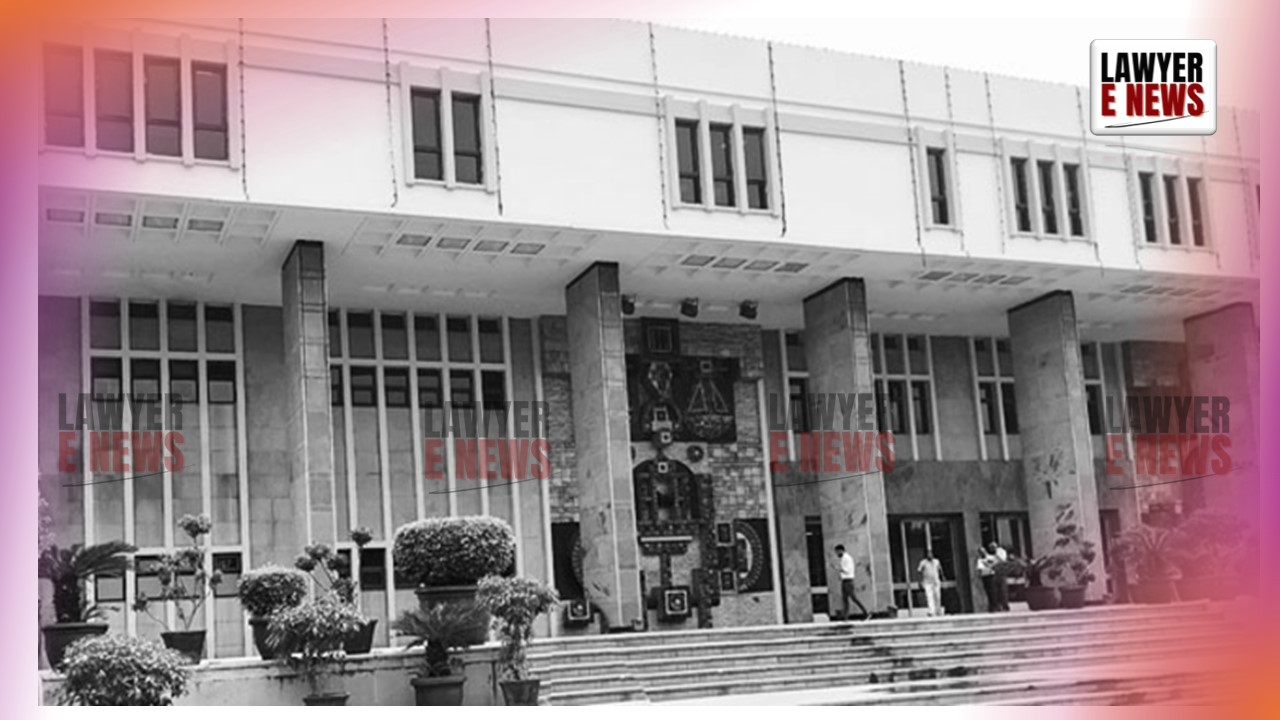-
by Admin
18 February 2026 2:25 PM



“Execution of a Will Is a Solemn Act — Mere Signature by Testator Is Not Enough Without Proper Attestation in Law” - In a detailed and significant ruling Delhi High Court in reaffirmed that the registration of a Will is not a substitute for its due execution.
Justice Dharmesh Sharma upheld the dismissal of the probate petition, emphatically stating: “Registration of a Will creates a rebuttable presumption — but if the execution is not proven in accordance with Section 63(c) of the Indian Succession Act, the Will cannot be enforced.”
The Court found that although the Will was registered, it was not properly attested by two witnesses as required by law, and thus could not be granted probate.
The Dispute over Sube Singh’s Will: A Classic Case of Attestation Gone Wrong
The case concerned a Will executed by Sube Singh on October 4, 2004, wherein he bequeathed his agricultural land and bank accounts to his second wife, Parmeshwari Devi, excluding the children from his first marriage. The Will was typed in English, while Sube Singh was known to sign in Urdu, and there was no evidence that the contents had been explained to him.
When Parmeshwari Devi sought probate, objections were raised by the children from the first marriage, alleging forgery, lack of testamentary capacity, and unfair exclusion.
The probate court dismissed her petition, holding that only one attesting witness had been examined, and even that witness failed to prove the complete attestation process involving the second witness.
Court’s Crucial Finding: “Execution Does Not Mean Just Signing — It Means Attestation by Two Witnesses in Testator’s Presence”
Justice Sharma, while analyzing the evidence, noted: “The attesting witness PW-3 only proved his own signature. He did not speak a word about the attestation by the second witness, Mr. R.S. Beniwal. Execution of the Will, therefore, remains incomplete.”
The Court emphasized that under Section 63(c) of the Indian Succession Act, the Will must be attested by at least two witnesses, and each must either witness the testator's signature or receive his acknowledgment.
Quoting the Supreme Court in Janki Narayan Bhoir v. Narayan Namdeo Kadam, the Court observed: “Mere proof of signature of the testator is not sufficient — attestation by two witnesses is mandatory and must be proved.”
Thus, even though the Will was registered, the statutory requirements were not fulfilled, and the Will could not be treated as valid.
Additional Evidence Plea Rejected: “A Litigant Cannot Be Permitted to Fill Gaps at the Appellate Stage”
Faced with the shortcoming of not proving the second attesting witness’s role, the appellant sought to introduce additional evidence under Order XLI Rule 27 CPC, seeking to summon the second witness post-appeal.
The Court firmly rejected this attempt, remarking: “Litigation cannot be allowed to become a game of chance — where a party waits for the outcome at the trial and, upon failure, tries to patch up loopholes at the appellate stage.”
Citing State Bank of India v. Pawanveer Singh, the Court clarified that: “Appellate jurisdiction cannot be used to reopen a trial. Allowing such belated evidence would cause immense public cost and defeat procedural fairness.”
Thus, the Court refused to permit any additional evidence at the appellate stage.
Suspicious Circumstances Were Left Unexplained: Court's Conscience Not Satisfied
The Court also highlighted that serious suspicious circumstances had arisen:
• The Will was in English but signed by a man who wrote in Urdu, without evidence that he understood its contents.
• The scribe of the Will was not produced.
• The Will excluded close family members without any explanation.
In the words of the Court: “When the Will is surrounded by suspicious circumstances, the propounder must remove all legitimate doubts to the satisfaction of the judicial conscience.”
Drawing from the classic principles laid down in H. Venkatachala Iyengar v. B.N. Thimmajamma, Justice Sharma observed: “In matters concerning Wills, the Court deals with a solemn document speaking from death, and suspicion must be wholly dispelled before it is accepted.”
In this case, the appellant failed to do so.
By dismissing the appeal, the Delhi High Court delivered a stern reminder that the statutory requirements for proving a Will are not mere formalities but mandatory legal safeguards to prevent fraud and abuse. Justice Dharmesh Sharma summed up: “Execution of a Will is not merely about the testator's signature — it is about fulfillment of solemn statutory conditions ensuring voluntariness and authenticity. These conditions were not fulfilled here.”
Accordingly, the appeal was dismissed, and the dismissal of the probate petition was confirmed.
Date of Decision: April 24, 2025
